The ASCRS Nominating Committee submits the following slate of Executive Council Officers and Members-at-Large in advance of the Society’s Annual Business Meeting on Tuesday, June 4, 2024.
.jpg?width=100&height=108) President: Sonia Ramamoorthy, MD
President: Sonia Ramamoorthy, MD
Dr. Sonia Ramamoorthy is Chief of the Division of Colon and Rectal Surgery and Professor of Surgery at UC San Diego Health System. She completed her colorectal surgery fellowship at Washington University and her MBA at the Rady School of Management at UCSD. She serves on the ASCRS Executive Committee as President-Elect and previously as Vice President, Treasurer, and Member-at-Large. She is the past Chair of the Credentials Committee and New Technology Committee. She helped to establish the ASCRS Leadership and Professional Development Program (Surgical Leadership Institute), the NEW Tech Symposium, and the Inflammatory Bowel Disease (IBD) Committee.
 President-Elect: Najjia N. Mahmoud, MD
President-Elect: Najjia N. Mahmoud, MD
Dr. Najjia Mahmoud is Chief of the Division of Colon and Rectal Surgery at the Hospital of the University of Pennsylvania. She completed her colorectal surgery fellowship at the University of Minnesota. She currently serves on the ASCRS Executive Committee as Vice President and previously served on the Research Foundation Board of Trustees. Dr. Mahmoud is Past President of the American Board of Colon and Rectal Surgery.
 Past President: Matthew G. Mutch, MD
Past President: Matthew G. Mutch, MD
Dr. Matthew Mutch is the current Chief of the Section of Colon and Rectal Surgery at Washington University School of Medicine in St Louis, MO. He completed his colorectal surgery fellowship at Lahey Clinic. He currently serves on the ASCRS Executive Committee as President and Research Foundation Board of Trustees. Dr. Mutch is a board member of the American Board of Colon and Rectal Surgery and is an Associate Editor for Diseases of the Colon & Rectum.
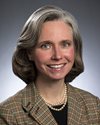 Vice President: Kirsten Wilkins, MD
Vice President: Kirsten Wilkins, MD
Dr. Kirsten Wilkins went to medical school at Johns Hopkins University and completed her general surgery residency at Duke University. She has lived in New Jersey since completing her colon and rectal residency at Robert Wood Johnson in 2003. Since that time, she has been honored to train the colorectal residents of that same program. She currently serves as the Assistant Program Director and is head of Resident Research. She serves as the current President of the Eugene P. Salvati Alumni Society. Besides running a very busy clinical practice and training the fellows, she has been very active in the New Jersey, New York, and Pennsylvania Societies of Colon and Rectal Surgeons. She is Past-President for both the New Jersey and Pennsylvania Societies. She has served on numerous committees of the American Society of Colon & Rectal Surgeons (ASCRS). She was the Program Chair for the ASCRS Annual Scientific Meeting in Los Angeles in 2016. She served as the Chair of the ASCRS Self-Assessment Committee. She was the Vice-Chair of The ASCRS Leadership Task Force and also serves as a Dean for ASCRS U. She has served as Member-at-Large on the ASCRS Executive Council. She is the Chair of the ASCRS Finance Committee and the current Treasurer for both ASCRS and the ASCRS Research Foundation.
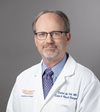 Secretary: Charles M. Friel, MD
Secretary: Charles M. Friel, MD
Dr. Charles Friel is Professor of Surgery, General Surgery Program Director, and Chief of the Section of Colorectal Surgery at the University of Virginia. A graduate of Harvard Medical School he did his general surgery training at the Beth Israel Deaconess Medical Center before completing his colorectal surgery fellowship at the University of Minnesota. He currently serves on the ASCRS Executive Committee as Secretary and is a member of the Diversity, Equity and Inclusion Committee and the Membership Committee. Dr. Friel is also a member of the American Board of Colon and Rectal Surgery. Dr. Friel previously served on the ASCRS Executive Council as a Member-at-Large from 2019-2022, in addition to being the former Chair of the Self-Assessment Committee and the Committee on Committees. He also serves as an Associate Editor for Diseases of the Colon & Rectum.
 Treasurer: Scott Steele, MD, MBA
Treasurer: Scott Steele, MD, MBA
Dr. Scott Steele serves as the President of the Main Campus Submarket and Chair of the Department of Colorectal Surgery at the Cleveland Clinic in Cleveland, OH. He completed his colorectal surgery fellowship at the University of Minnesota and received his MBA from the Weatherhead School of Business at Case Western Reserve University. He currently serves on the ASCRS Governance Committee and is Chair of the Committee on Committees, Advisor to the COI Committee, and Council representative to numerous ASCRS committees. Dr. Steele is Past President of the American Board of Colon and Rectal Surgery, was lead editor for several volumes of the ASCRS Textbook of Colon and Rectal Surgery and serves as a Co-Editor for Diseases of the Colon & Rectum.
Members-at-Large
2022-2025
 Glenn Thomas Ault, MD, MSEd serves as the Physician Director of Graduate Medical Education and the Designated Institutional Official at the Keck School of Medicine of the University of Southern California. He is a Professor of Surgery (Educational Scholar). He completed his colorectal surgery fellowship at the University of Southern California. He currently serves on the ASCRS Continuing Education Committee and Governance Committee and is Council representative to several ASCRS committees. Dr. Ault is Past-President of the American Board of Colon and Rectal Surgery, Past-President of the Program Directors Association, and the Chair of the CRS Review Committee at the Accreditation Council for Graduate Medical Education (ACGME).
Glenn Thomas Ault, MD, MSEd serves as the Physician Director of Graduate Medical Education and the Designated Institutional Official at the Keck School of Medicine of the University of Southern California. He is a Professor of Surgery (Educational Scholar). He completed his colorectal surgery fellowship at the University of Southern California. He currently serves on the ASCRS Continuing Education Committee and Governance Committee and is Council representative to several ASCRS committees. Dr. Ault is Past-President of the American Board of Colon and Rectal Surgery, Past-President of the Program Directors Association, and the Chair of the CRS Review Committee at the Accreditation Council for Graduate Medical Education (ACGME).
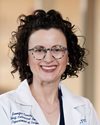 Jennifer S. Davids, MD is the Chief of Colon and Rectal Surgery in the Department of Surgery at Boston Medical Center. She completed her colorectal surgery fellowship at the University of Massachusetts Memorial Medical Center, where she was in practice for a decade. The former Chair of the Young Surgeons Committee, Dr. Davids currently serves on the Clinical Practice Guideline Committee and is the Executive Council representative to the Rectal Cancer Committee, Pelvic Floor Committee, and New Technology Committee. In 2019, Dr. Davids was the recipient of the ASCRS Traveling Fellowship to the ACPGBI (Association of Coloproctology of Great Britain and Ireland) in Great Britain. Dr. Davids is on the Editorial Board of Diseases of the Colon and Rectum, Techniques in Coloproctology, and Clinics in Colon & Rectal Surgery and serves as a Senior Examiner for the American Board of Colon and Rectal Surgery.
Jennifer S. Davids, MD is the Chief of Colon and Rectal Surgery in the Department of Surgery at Boston Medical Center. She completed her colorectal surgery fellowship at the University of Massachusetts Memorial Medical Center, where she was in practice for a decade. The former Chair of the Young Surgeons Committee, Dr. Davids currently serves on the Clinical Practice Guideline Committee and is the Executive Council representative to the Rectal Cancer Committee, Pelvic Floor Committee, and New Technology Committee. In 2019, Dr. Davids was the recipient of the ASCRS Traveling Fellowship to the ACPGBI (Association of Coloproctology of Great Britain and Ireland) in Great Britain. Dr. Davids is on the Editorial Board of Diseases of the Colon and Rectum, Techniques in Coloproctology, and Clinics in Colon & Rectal Surgery and serves as a Senior Examiner for the American Board of Colon and Rectal Surgery.
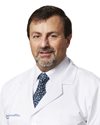 Alessandro Fichera, MD is the Vice Chair for Safety and Quality, Division Chief of Colorectal Surgery and the Surgery Safety and Quality Officer at Baylor University Medical Center in Dallas, Texas. He completed his colorectal surgery fellowship at Mt. Sinai Medical Center in New York. He currently serves on the ASCRS Credentials Committee and is the Chair of the Regional Society Committee, incoming Chair of the Committee on Committees, Executive Council representative to the ASCRS Video Based Education, Inflammatory Bowel Disease and Quality and Safety committees. Dr. Fichera is the Section Editor of the Didactic Video Collections for Diseases of the Colon & Rectum.
Alessandro Fichera, MD is the Vice Chair for Safety and Quality, Division Chief of Colorectal Surgery and the Surgery Safety and Quality Officer at Baylor University Medical Center in Dallas, Texas. He completed his colorectal surgery fellowship at Mt. Sinai Medical Center in New York. He currently serves on the ASCRS Credentials Committee and is the Chair of the Regional Society Committee, incoming Chair of the Committee on Committees, Executive Council representative to the ASCRS Video Based Education, Inflammatory Bowel Disease and Quality and Safety committees. Dr. Fichera is the Section Editor of the Didactic Video Collections for Diseases of the Colon & Rectum.
2023-2026
 Karim Alavi, MD, MPH is an Associate Professor of Surgery in the Department of Surgery/Division of Colon and Rectal Surgery and the Graduate School of Biomedical Sciences, and Program Director of the Colon and Rectal Surgery Fellowship at University of Massachusetts Medical School. He also serves as the Director of Research for the Department of Surgery. He completed his colorectal surgery fellowship at the University of Minnesota. He is Member/Incoming Advisor to the Clinical Practice Guidelines Committee. Dr. Alavi serves on the Editorial Board of Diseases of the Colon & Rectum and is the Section Editor for Current Status Reviews.
Karim Alavi, MD, MPH is an Associate Professor of Surgery in the Department of Surgery/Division of Colon and Rectal Surgery and the Graduate School of Biomedical Sciences, and Program Director of the Colon and Rectal Surgery Fellowship at University of Massachusetts Medical School. He also serves as the Director of Research for the Department of Surgery. He completed his colorectal surgery fellowship at the University of Minnesota. He is Member/Incoming Advisor to the Clinical Practice Guidelines Committee. Dr. Alavi serves on the Editorial Board of Diseases of the Colon & Rectum and is the Section Editor for Current Status Reviews.
 Sean J. Langenfeld, MD is a Professor of Surgery and Chief of the Division of Colon and Rectal Surgery at the University of Nebraska Medical Center. He completed his colorectal surgery fellowship at the University of Texas in Houston and his general surgery fellowship at Kansas University-Wichita. He currently serves as a member of the ASCRS Clinical Practice Guidelines Committee, Executive Council representative to the Communications, Healthcare Economics, and Professional Outreach Committees and is the Section Editor of Selected Abstracts for Diseases of the Colon & Rectum.
Sean J. Langenfeld, MD is a Professor of Surgery and Chief of the Division of Colon and Rectal Surgery at the University of Nebraska Medical Center. He completed his colorectal surgery fellowship at the University of Texas in Houston and his general surgery fellowship at Kansas University-Wichita. He currently serves as a member of the ASCRS Clinical Practice Guidelines Committee, Executive Council representative to the Communications, Healthcare Economics, and Professional Outreach Committees and is the Section Editor of Selected Abstracts for Diseases of the Colon & Rectum.
 Kelly M. Tyler, MD is the Division Chief, Colorectal Surgery and a Professor of Surgery, at University of Massachusetts Chan Medical School - Baystate. She completed her colorectal surgery fellowship at Robert Wood Johnson/University of Medicine and Dentistry of New Brunswick, New Jersey. She currently serves as Chair of the ASCRS Healthcare Economics Committee and is a member of the Rectal Cancer Committee, Quality and Safety Committee, and Governance Committee. She also serves as the American Medical Association RVS Update Committee (RUC) Advisor for ASCRS.
Kelly M. Tyler, MD is the Division Chief, Colorectal Surgery and a Professor of Surgery, at University of Massachusetts Chan Medical School - Baystate. She completed her colorectal surgery fellowship at Robert Wood Johnson/University of Medicine and Dentistry of New Brunswick, New Jersey. She currently serves as Chair of the ASCRS Healthcare Economics Committee and is a member of the Rectal Cancer Committee, Quality and Safety Committee, and Governance Committee. She also serves as the American Medical Association RVS Update Committee (RUC) Advisor for ASCRS.
2024 – 2027
 Joshua Bleier, MD is a Professor of Surgery and Chair of the Department of Surgery at Pennsylvania Hospital and Program Director of the Colorectal Fellowship at the University of Pennsylvania. He completed his colorectal surgery fellowship at the University of Minnesota. He is a past Chair of the CREST Committee, and currently serves on the Steering Committee on Pelvic Floor Disorders. He was a Program Vice-Chair for the ASCRS Annual Scientific Meeting in Los Angeles in 2016. Dr. Bleier is a board member of the American Board of Colon and Rectal Surgery, Treasurer of the Association of Program Directors for Colon and Rectal Surgery, and a member of the Colorectal Review Committee at the Accreditation Council for Graduate Medical Education (ACGME). He is a member of the Editorial Board of Diseases of the Colon & Rectum and serves as the Section Editor for Social Media and Readership Engagement.
Joshua Bleier, MD is a Professor of Surgery and Chair of the Department of Surgery at Pennsylvania Hospital and Program Director of the Colorectal Fellowship at the University of Pennsylvania. He completed his colorectal surgery fellowship at the University of Minnesota. He is a past Chair of the CREST Committee, and currently serves on the Steering Committee on Pelvic Floor Disorders. He was a Program Vice-Chair for the ASCRS Annual Scientific Meeting in Los Angeles in 2016. Dr. Bleier is a board member of the American Board of Colon and Rectal Surgery, Treasurer of the Association of Program Directors for Colon and Rectal Surgery, and a member of the Colorectal Review Committee at the Accreditation Council for Graduate Medical Education (ACGME). He is a member of the Editorial Board of Diseases of the Colon & Rectum and serves as the Section Editor for Social Media and Readership Engagement.
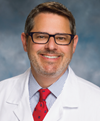 Daniel Feingold, MD is a Professor of Surgery and the Chief of the Division of Colon and Rectal Surgery at Robert Wood Johnson Medical School at Rutgers University and at the Cancer Institute of New Jersey in New Brunswick, New Jersey. He completed his surgical oncology fellowship at the National Cancer Institute in 2000 and his colorectal surgery training at Robert Wood Johnson Medical School in 2004. Dr. Feingold is the immediate Past-President of the New Jersey Society of Colon and Rectal Surgeons and currently serves as an Associate Editor for Diseases of the Colon & Rectum, an Annual Meeting Abstract reviewer, and a Senior Advisor for the Clinical Practice Guidelines committee.
Daniel Feingold, MD is a Professor of Surgery and the Chief of the Division of Colon and Rectal Surgery at Robert Wood Johnson Medical School at Rutgers University and at the Cancer Institute of New Jersey in New Brunswick, New Jersey. He completed his surgical oncology fellowship at the National Cancer Institute in 2000 and his colorectal surgery training at Robert Wood Johnson Medical School in 2004. Dr. Feingold is the immediate Past-President of the New Jersey Society of Colon and Rectal Surgeons and currently serves as an Associate Editor for Diseases of the Colon & Rectum, an Annual Meeting Abstract reviewer, and a Senior Advisor for the Clinical Practice Guidelines committee.
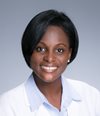 Erin King-Mullins, MD is a Founding Surgeon at the Colorectal Wellness Center in Fayetteville, GA. She completed her colorectal surgery fellowship at Georgia Colon and Rectal Surgical Associates / Northside Hospital. She currently serves as Chair of the Diversity, Equity and Inclusion Committee, Vice Chair of the Program Committee, and a member of the Communications Committee, Engagement Committee, Young Researchers Committee, and Community and Private Practice Group. Additionally, Dr. King-Mullins is an Inaugural Gut Check podcast co-host and President-Elect of the newly formed Society of Black Colon and Rectal Surgeons.
Erin King-Mullins, MD is a Founding Surgeon at the Colorectal Wellness Center in Fayetteville, GA. She completed her colorectal surgery fellowship at Georgia Colon and Rectal Surgical Associates / Northside Hospital. She currently serves as Chair of the Diversity, Equity and Inclusion Committee, Vice Chair of the Program Committee, and a member of the Communications Committee, Engagement Committee, Young Researchers Committee, and Community and Private Practice Group. Additionally, Dr. King-Mullins is an Inaugural Gut Check podcast co-host and President-Elect of the newly formed Society of Black Colon and Rectal Surgeons.